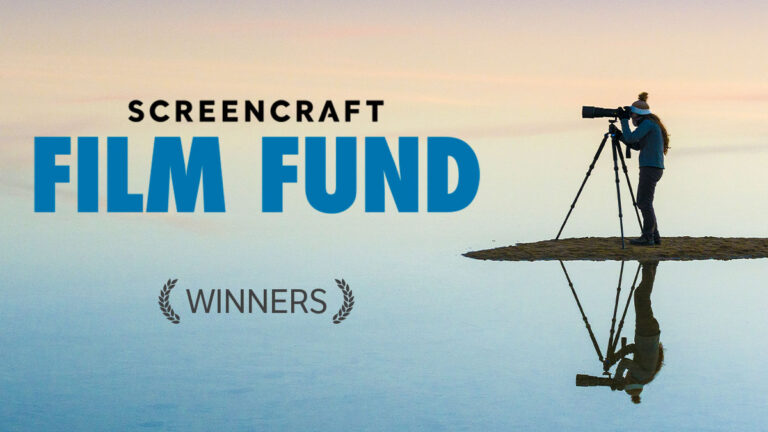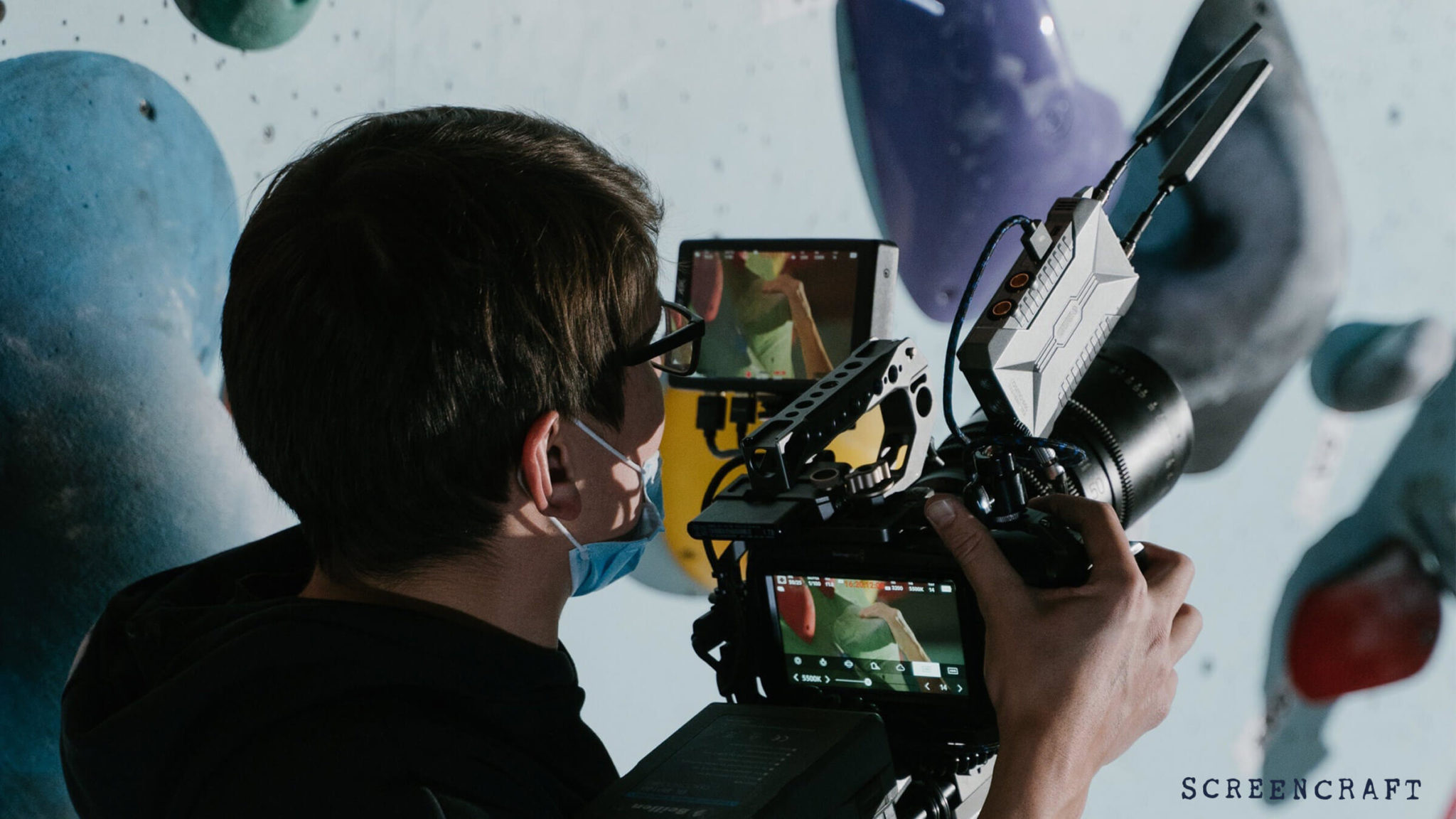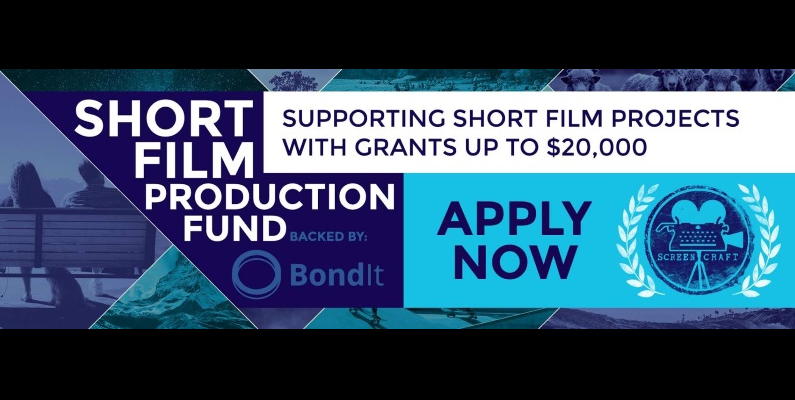
Film grants are one of the portals to the necessary funds screenwriters and filmmakers need to achieve the ultimate goal — getting a project produced.
Whether you're a screenwriter looking to package your script with an indie director and crew or a filmmaker looking to raise funds for your feature or short film budget, film grants offer you an option that can make your project a viable production.
It takes money to make a film. There's no way around that. Thankfully, there are many film grants out there that you can take advantage of. But the first thing you need to realize is that there's plenty of competition out there for those film grants. Your film grant application, and the way it is presented, will dictate whether or not you stand apart from that competition. And it all starts with the film grant first impression — the cover letter.
Table of Contents
What is a cover letter?
A cover letter for a film grant application is similar to an artist statement. It's a short but sweet series of sentences that describes who you are, what you want to make, and why you and your project should be chosen. Consider it an introductory conversation where you are talking to someone about your work in a way that enhances their experience of envisioning that work.
In short, the cover letter of a film grant is a pitch — a brief summary of what they will view within your film grant application. But it also has to make an impression that stands out from the rest.
What your film grant cover letter should not be
Before we get into how to write a film grant cover letter, let's point out what one should NOT be:
- It's not a personal biography: Everyone applying for a film grant has a love and passion for cinema and storytelling. You can work your love and passion for them into your cover letter with a couple of sentences of sentiment spread throughout it as you make your pitch, but don't waste too much time on the obvious.
- It's not a history of your career: While you will work in your most notable accomplishments that are applicable to film, this isn't the place to list every single project you've worked on from high school to the present. It's not about quantity — it's about quality and relevance.
- It's not a memo about how cinema needs you: Confidence is one thing (and an important one at that). But going on and on about yourself and how Hollywood and cinema need your brilliance is not confidence — that's ego.
- It's not a vocabulary competition: There's no point in trying to dazzle anyone with big words. They want you to get to the point and communicate swiftly and easily.
- And check your grammar and spelling: We highly recommend Grammarly. It will change your life as a writer.
What your film grant cover letter should be
While there are no two cover letters alike (and there shouldn't be, because how would you stand out otherwise?), certain directives are necessary to follow:
- Keep it short: Brief overviews, brief paragraphs, brief sentiments.
- Get to the point: Don't waste the opening sentences with fluff, pandering, or rhetoric.
- Don't pull sentences from the application: Don't repeat yourself.
- Keep it to one page: You'll be tempted to do more than a page. Resist that temptation.
How to format your cover letter
Formats can vary, but one key is to avoid making your cover letter "busy." Remember that film grant program directors and their staff are reading hundreds of these cover letters, so they need to be able to process information and content quickly. Follow these format guidelines as close as you'd like to accomplish that:
- Have the headline centered and in a larger text size, preferably with a bold font to have your project's title and your name in full view for their reference. Yes, there are more academic and formal ways to write film grant cover letters, but this type of headline pops just a bit more.
- Keep the font basic and professional for ease of reading.
- Open with "Dear...," If there is an individual film grant director you can address, give it that personal touch. If a group of people is offering the grant, perhaps refer to them as team, board, group, or whatever is applicable. If a company is offering it, use the host company name.
- Open with a brief introduction paragraph.
- Have your pitch content (see below) spaced out with 4-5 short paragraphs.
- End the letter with a brief summarizing paragraph followed by a sentence thanking the reader for their time and consideration. If you have a website that can offer further elaboration to explore as an option, feel free to hyperlink a URL.
- Close with "Sincerely," followed by your full name and any contact information. Note: Be aware of the film grant program's rules and regulations regarding whether or not they allow or want certain contact information present on the cover letter.
What should you say in a film grant cover letter?
The cover letter is all about answering the basic questions for the film grant program directors and their staff — without them needing to ask them (that's what the application is for).
With that in mind, we have an easy formula to follow:
Who + What + Why + How = Everything they need to know.
Who are you?
The opening brief paragraph covers who you are. You can also briefly include any notable information:
- Experience — Focus on fully funded, produced, and distributed (if possible) projects only. You can also briefly mention the number of features and shorts you've been involved with — but don't list them all individually. With screenwriters, don't share the number of spec scripts you've written. Again, we're talking about notable information. If you've sold some scripts or if some have been produced and distributed, list those. If not, better not to look like your padding your experience with unproduced spec mentions.
- Accolades — Focus on mainstream contests, competitions, and fellowships. Avoid any placements below finalist or winner (preferably list winner accolades only). Avoid smaller local placements or wins, including small film festivals that aren't nationally or internationally known and revered.
- Concept Expertise Connections — If your film is about a soldier and you are a veteran, you can and should connect your expertise to the concept.
What do you need the film grant funds for?
In the next couple of brief paragraphs, detail what you're pitching.
- Is it a short or a feature?
- What is the genre?
- What is the title?
- What is the logline?
- What kind of scope does the project entail (budget, locations, etc.)?
Why should the project be produced, and why you are the one who should make it?
This is where you can inject those loves, passions, influences, and inspirations — in brief fashion and interspersed with comments on why the project is unique and special.
And yes, the most common question from Hollywood is, "Why are you the one who should write or direct this?" Answer that pivotal question before they even ask it.
How do you plan on using the film grant funds?
If someone is going to give you a film grant, they're going to want to know that their money is going somewhere where it's needed and will be utilized well.
Detail how you're going to use those funds. Depending on the film grant stipulations:
- Maybe you have a film already in production and need post-production funds.
- Maybe you have part of the budget but need the film grant funds to complete it.
- Maybe you're a screenwriter and are looking to use the funds to attach a director and crew to produce it.
Whatever the case may be (again, depending on what type of film grant you're applying for), briefly close your pitch by showing that you have a plan in place.
Film Grant Cover Letter Format Checklist
❑ Centered Headline with the name of the Project and Your Name
❑ Open with:
- Dear [Company Name Here],
- Dear Film Fund team,
- Dear Film Fund Board,
- Dear Film Fund Group
Whatever is applicable.
❑ One brief paragraph introducing yourself.
❑ 1-2 brief paragraphs featuring what (project) you are pitching.
❑ A brief paragraph of why the project should be produced, and why you should be the one to make that happen.
❑ A brief paragraph on how the funds would be utilized.
❑ A closing paragraph summarizing the cover letter and thanking the reader for their time and consideration.
❑ Close with:
Sincerely,
[Your Name Here]Any approved contact information — usually an email address would suffice.
Ken Miyamoto has worked in the film industry for nearly two decades, most notably as a studio liaison for Sony Studios and then as a script reader and story analyst for Sony Pictures.
He has many studio meetings under his belt as a produced screenwriter, meeting with the likes of Sony, Dreamworks, Universal, Disney, Warner Brothers, as well as many production and management companies. He has had a previous development deal with Lionsgate, as well as multiple writing assignments, including the produced miniseries Blackout, starring Anne Heche, Sean Patrick Flanery, Billy Zane, James Brolin, Haylie Duff, Brian Bloom, Eric La Salle, and Bruce Boxleitner, and the feature thriller Hunter’s Creed starring Duane “Dog the Bounty Hunter” Chapman, Wesley Truman Daniel, Mickey O’Sullivan, John Victor Allen, and James Errico. Follow Ken on Twitter @KenMovies
For all the latest ScreenCraft news and updates, follow us on Twitter, Facebook, and Instagram.
Tags
Get Our Screenwriting Newsletter!
Get weekly writing inspiration delivered to your inbox - including industry news, popular articles, and more!



























